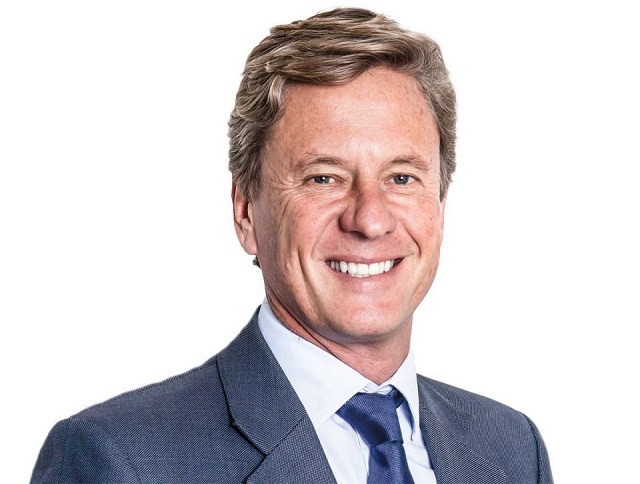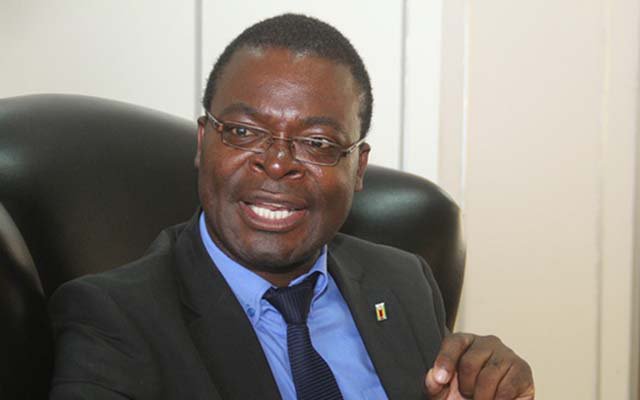EDITORIAL COMMENT: World now believes Zimbabwe is ripe for an economic revolution

THERE is a strong belief that Zimbabwe is a sleeping giant —ready to rise like a phoenix from the ashes of the past two decades of economic stagnation.
There is also optimism that the new dispensation is laying the groundwork for that economic resuscitation by putting in place the institutional framework needed to kick start the rise of Zimbabwe to be an economic force not just within the African continent but the world over.
Just like Rwanda which defied the worst human catastrophe of the past century — the 1994 genocide which saw close to a million people butchered in a senseless orgy of mass killings — to put its act together, close ranks as a nation and build an economic powerhouse, Zimbabwe is poised to match or even surpass that feat given the fundamentals on the ground. Zimbabwe is a stable constitutional democracy with strong institutions such as the judiciary, legislature, civil society, trade unions, a vibrant media and a sound infrastructure which just needs revamping to match world standards.
It is also endowed with natural resources such as minerals, gas, wildlife, fertile land and a highly skilled and literate population. Already, steps are being taken to rehabilitate roads, the railway system, airports, power utilities, the ICT sector and host of other utilities needed to attract Foreign Direct Investment. The Government of President Mnangagwa is also going out of its way to make the country conducive for investment under its Zimbabwe is Open for Business mantra. Investment laws are being relaxed while the Ease of Doing Business is being made a priority so that impediments to FDI are removed.
In fact, immense progress has been recorded in the past six months of the new dispensation than in the two decades of economic haemorrhaging experienced in the twilight of former President Mugabe’s rule. The world has taken note of these developments and responded positively with investor delegations flocking into Harare to explore opportunities. They are coming from all parts of the world — Western countries such as the United States, the United Kingdom and Scandinavia; the Far East, Russia and Eastern Europe.
What is attracting these investors to Zimbabwe is the stability ushered in by the new administration and policy clarity which makes it easy to plan and commit resources. There is renewed confidence in Zimbabwe and the country is poised to reap the benefits of this new thrust with a glut of conglomerates ploughing their money into the economy.
Even though the country is set to hold harmonised elections on July 30, investors have not been deterred with those adopting a wait and see attitude likely to lose out to the early birds. There is also a realisation that conditions are unlikely to change after the elections, with President Mnangagwa and his ruling Zanu-PF party favoured to romp to victory in the polls.
So those sceptical and cautious investors hedging their bets and waiting on the outcome of the elections might find themselves crowded out by those who took chances and believed in the vision of the current Government. Britain is among the leading countries bidding for a slice of Zimbabwe’s cake and this should be a pointer to those wary of committing their funds into the country.
A diplomatic spat between Whitehall and Harare over the land reform programme precipitated Zimbabwe’s economic malaise. The fact that the UK is playing a central role in getting Zimbabwe back into the community of nations shows that indeed something big is about to happen in this southern African nation.
Before year end, Zimbabwe will be readmitted into the Commonwealth and not long after elections (which will be free, fair and credible), the country will have sanctions imposed by the likes of the US, EU and other bodies removed in toto. At that point, the country’s journey towards economic transformation will have reached the home stretch. Britain, as the former colonial power, recognises this stubborn fact and is already preparing for a head start.
On Monday, President Mnangagwa met the biggest ever British trade delegation comprising 21 diverse organisations with interests in different sectors of the economy. Speaking to journalists after the meeting, head of delegation Mr Rob Hersov, who is also chairman and chief executive officer of London-headquartered African Capital Investments (ACI), said his team chose to come in early to explore opportunities ahead of an influx of foreign capital in Zimbabwe due to the positive investor sentiment.
“The President and his ministers were very open, honest and frank about the situation that Zimbabwe is in right now but also the potential that your country has,” said Mr Hersov. “We are great believers in the country, the most literate country in Africa, (with) almost every mineral and metal and it has a very diverse and extraordinary investment opportunity,’ he said.
“So the delegation that came here is quite a big delegation, 22 of us, and there are private investors and also senior decision-makers from very large investment companies. “The opportunity is very broad. There are a number of people here that are in energy, mining, tourism and hospitality, the logistics sector and the agri-sector and Zimbabwe offers opportunities in all of those,” he said adding that Zimbabwe was poised for massive growth and could be the best in the world.









Comments